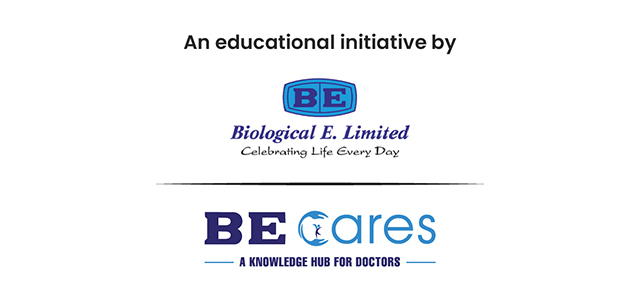Prevention is better for those who cure: Demystifying medico-legal issues in clinical practice for Doctors
You have chosen one of the noblest professions in the world and provide a service to humanity with your skills and care which makes you no less than God for most of us.
Having said that, there have been many instances in recent years which throw light on the dark side of being in this profession.
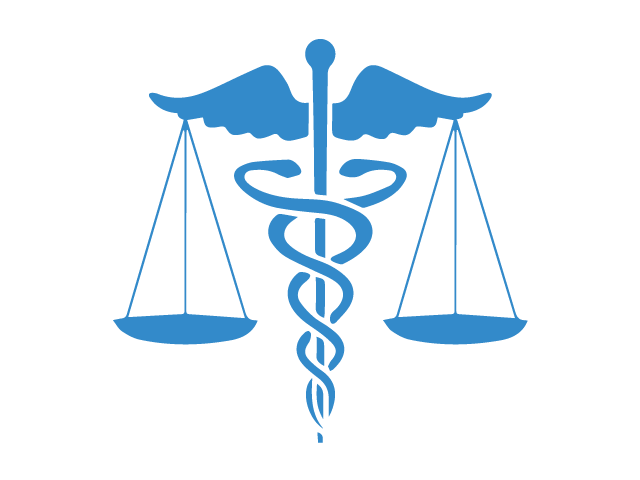
Dear Doctor,
Many headlines have taken over the news like ‘Man attacks a doctor in Thiruvananthapuram Medical College Hospital after learning about the death of his wife.1, ‘Mc Gann hospital doctors, staff stage protest alleging assault by relatives of patient in Shivamogga.2 etc. which show the rising cases in India of doctor assault by families of patients who succumbed to death. By no means is this correct. Doctors strive hard day and night to cure patients and this is the last thing they would want.
At the same time a few bad apples in the profession are spoiling the reputation of this profession with their acts and sadly they are making headlines too. For instance, the news headlines Bihar Woman Whose Kidneys Were Stolen at Hospital Demands Transplant Using Doctor's Organ.3 throws light on the malpractices conducted in day light by some doctors and hospitals thereby increasing distrust in doctors by citizens of this country. There are also many cases where sheer negligence on part of the doctor led to death of a patient. For instance, the headlines ‘Medical negligence case against Kerala govt doctor after teenager’s forearm amputated.’4 gives an idea of the real consequences of medical negligence.
With the rising number of cases where doctors in the country are being embroiled in lawsuits, we thought it is apt to make you aware of the happenings and provide some knowledge from a medico-legal perspective that may help you in preventing certain situations and protecting yourself from any unforeseen circumstances while you go on with performing your duties.
Medical negligence:
As we deep dive into the medico-legal arena, let us begin with Medical Negligence, which is by far the basis for most claims against doctors. We must first answer as to what can be considered as medical negligence to form the basis of a legal case. While the term “Medical Negligence” generally refers to the wrongful actions or omissions by medical professionals in pursuit of their profession while dealing with patients, it must be noted that it is not a term defined or referred to anywhere in any of the enacted Indian laws. Hence, in cases pertaining to medical negligence, the court relies on the basic principles of reasonableness and prudence.
Every doctor owes his patient a duty of care
➢ in deciding whether to undertake the case or not
➢ in deciding which treatment to give
➢ in administering the treatment
➢ not to undertake any procedure beyond his or her control, and it is expected that the doctor will bring a reasonable degree of skill and knowledge and will exercise a reasonable degree of care.5
If the doctor fails in performing his duties in line with the above duty of care, he or she may be termed to be in breach of his or her duty and thereby considered being negligent and the patient can therefore file a suit against the doctor in such a case. Further, if the case pertains to negligent non-disclosure, the patient has to prove that had he/she been adequately informed, he/she would not have accepted the treatment in the first place. Doctors, meanwhile, can take solace from the fact that the court requires that medical negligence has to be established and cannot be presumed which means that the burden of proof lies on the patient or the person who alleges negligence against the doctor and that a doctor can only be held liable if the plaintiff proves that the doctor is guilty of a failure that no doctor with ordinary skills would be guilty of if acting with reasonable care. The law requires a higher standard of evidence to support an allegation of negligence against the doctor than in other cases.5
Now let us assume that the patient does have evidence to prove negligence on part of the doctor. In that case it is important to know what sort of actions the patient or the person alleging negligence take. Victims of medical negligence can resort to 3 main types of actions, namely,
1. Compensatory action refers to the victim seeking monetary compensation before the Civil Court, High Court, or the Supreme Court under the constitutional law of or law of torts/law of contract, or the Consumer Dispute Redressal Forum under the Consumer Protection Act. Here one may ask that how can Medical Negligence come under the Consumer Protection Act when there are bodies like Indian Medical Association in place. In this regard, it must be noted that in the case of Indian Medical Association v. V.P. Shanta & Ors, the Supreme Court decision brought medical services rendered by a doctor under the ambit of “Service” defined in the Consumer Protection Act, 1986.6
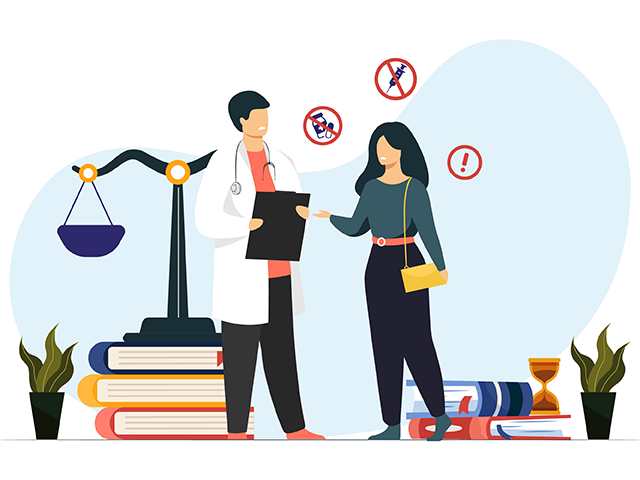
2. Punitive Action, the patient or the person alleging negligence on part of the doctor can file a criminal complaint against the doctor under Section 304A of the Indian Penal Code (IPC) which states that “whoever causes the death of a person by a rash or negligent act not amounting to culpable homicide shall be punished with imprisonment for a term of two years, or with a fine or with both.” However, there are certain clauses in law that may offer some level of protection to the doctor.
➢ Section 80 of the IPC states that “‘nothing is an offense that is done by accident or misfortune and without any criminal intention or knowledge in the doing of a lawful act in a lawful manner by lawful means and with proper care and caution.”
➢ Also, Section 88 of the IPC states that “Nothing which is not intended to cause death, is an offence by reason of any harm which it may cause, or be intended by the doer to cause, or be known by the doer to be likely to cause, to any person for whose benefit it is done in good faith, and who has given a consent, whether express or implied, to suffer that harm, or to take the risk of that harm.”
You must note that these are 2 important sections under the IPC that can help you in case any person files a criminal suit under section 304A. What these sections clearly intend to say is that if the doctor has carried out his duties by law and there is an accident or misfortune, it cannot be considered to be a crime. Also, if the patient has given a consent to perform any operation and the doctor has done it in good faith then it won’t be considered as a crime if some harm is caused to the patient during the said operation. Thus, what clearly has to be proved in case of punitive action is that there was a malicious intent or gross negligence on part of the doctor.6
3. Disciplinary Action wherein the patient or any person alleging negligence on part of the doctor can move to the professional bodies like Indian Medical Council/ State Medical Council seeking disciplinary action against the doctor. Medical negligence is considered to be a subset of the professional misconduct as per the Indian Medical Council Act, 1956. If a medical practitioner is found guilty of professional misconduct by appropriate Medical Council, it may award punishment which includes removal of name from the register of medical practitioner permanently or for a specified period. Deletion from the register is widely publicised through the local press as well as publications of different Medical Associations/Bodies/Societies. During the pendency of the complaint, the council may restrain the physician from performing the procedure or practice under scrutiny.6
So far, we have understood medical negligence and the actions any patient or any person alleging negligence on part of the doctor can take as well as the laws which govern such actions. Apart from this there are many common errors made by medical professionals which can be avoided. Let us discuss these errors with a view to avoid them in future.
Avoidance
One common error that Doctors make is avoiding making rounds in the presence of the patient’s relatives if the patient had a bad outcome. Rather than avoiding the patient and their families, what doctors need to do is to let the patient and their relatives know that as a treating doctor you understand their problems. Maintaining eye contact while speaking and putting a comforting hand on an individual’s arm can help in soothing the patient and their family.
Defensive medicine
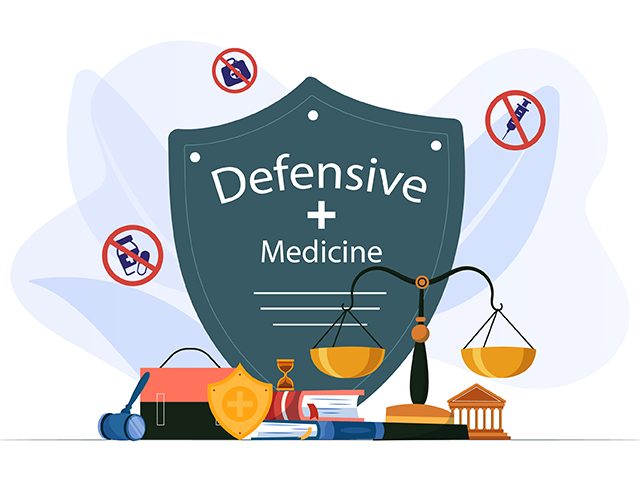
Another common error, sometimes done deliberately as well, is practising defensive medicine. Giving unnecessary defensive medicine, especially in a country like India where affordability of medicines is a matter of concern, is likely to get backlash from patients as they are more likely to complain about this. Moreover, intentionally advising unwanted tests and investigations clearly amounts to medical malpractice and should be always avoided.
Poor communication
Many a times, doctors will encounter patients who are tech savvy and would have already read a lot about their own symptoms. At the same time, there will be a set of patients who would hold back on information. This is what makes diagnoses difficult for the doctor. Clear communication is a must to diagnose the patient correctly. Also, once diagnosed it is necessary that the doctor takes sufficient time to explain the diagnosis, treatment and medication plans to the patient and then checks with them to see if they have correctly understood the same. This not only ensures proper adherence but also demonstrates that as a doctor you care about your patients and the longer the quality time spent with the patient, lesser the chances of being sued. There are also times when doctors are likely to make prescribing errors. It is essential for the doctor to know all the medications the patient is already taking before prescribing any medicines to prevent any inadvertent drug interactions. Doctors should
reinforce the importance of taking medications only as prescribed and if in case any medicine is not having the desired effect, you should let the patient know that he/she should immediately contact you.
Treatment without informed consent/ without explaining details mentioned in the consent form
Another common error made by doctors that can easily be avoided is not making any complication for any known risk in any procedure clearly indicated on the consent form for the medical procedure. In fact, such risks should be explained to the patient prior to the procedure. As we can see transparency and clear communication can go a long way in establishing trust with the patient and their families and thus avoid any medico-legal issues in the future.7
Facing a medical lawsuit
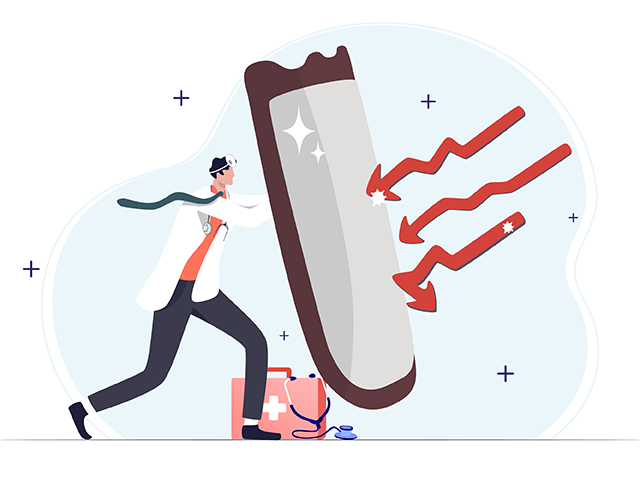
Finally, let us assume that some patient or their family does take an action on the doctor. It is important to know how one can protect one’s assets and earnings as a doctor. It is vital for the survival of a doctor to develop an asset protection plan along with professional medical indemnity insurance. A lawsuit can devastate the ability of the doctor to earn a living in practicing medicine. Not only that,
but a lawsuit can also eat away into years of savings and other assets. Hence, professional indemnity insurance is a must for any doctor.
Professional indemnity insurance is of two types.
➢ One is for personal or individual: If the doctor runs an individual clinic, it is best to get a personal professional indemnity insurance for oneself as well as the assistant.
➢ Another is an errors and omissions policy which covers institutions like nursing homes or hospitals along with its staff members. If the doctor owns a hospital or a nursing home, in the eyes of law, it is a separate legal entity and often can be made a party to a medico-legal case. In such cases having an errors and omissions policy becomes critical.
Thus, we can see there are ways by which a doctor can protect his earnings and assets through a proper insurance policy if he/she were to be made a party to any medico legal case.
Apart from this, the Supreme Court had issued a broad advisory for Doctors to safeguard them in case of Criminal Prosecution. Following this advisory at all times can help you prevent many medico-legal issues. As per the advisory, Precautions which doctors/hospitals/nursing homes should take are as follows:
1. Current practices, infrastructure, paramedical and other staff, hygiene, and sterility should be observed strictly.
2. No prescription should ordinarily be given without actual examination. The tendency to give prescription over the telephone, except in an acute emergency, should be avoided.
3. A doctor should not merely go by the version of the patient regarding his symptoms but should also make his own analysis including tests and investigations where necessary.
4. A doctor should not experiment unless necessary and even then, he should ordinarily get a written consent from the patient.
5. An expert should be consulted in case of any doubt.
6. Full record of the diagnosis, treatment, etc., should be maintained.
Moreover, given the rise in criminal prosecution of doctors, which is both embarrassing and harassing for them, and to protect them from frivolous and unjust prosecutions Supreme Court laid certain binding guidelines as follows:
1. Private complaint may not be entertained unless the complainant has produced prima facie evidence in the court in the form of a credible opinion given by another competent doctor.
2. Investigation officer should obtain an independent and competent medical opinion preferably from a doctor in government service qualified in that branch of medical practice who can
normally be expected to give an impartial and unbiased opinion applying Bolam test to the facts collected in the investigation.
3. Doctor may not be arrested in a routine manner unless the arrest is necessary for furthering the investigation or for collecting the evidence or if the investigation officer is satisfied that doctor may flee7
All in all, we now understand medical negligence and other common errors that can happen and can be prevented by doctors. We also understand what actions a patient or any person alleging negligence on part of the doctor can take and how the doctor can protect themselves, their earnings, and assets through proper insurance policy. If Doctors follow the Supreme Court advisory and guidelines properly, they can prevent any medico-legal issues while performing their duties. As you cure patients and strive day and night for the service and wellbeing of people, we say prevention is better for those who cure.
References
1. https://english.mathrubhumi.com/news/kerala/tvm-man-attacks-woman-doctor-after-learning-about-death-of-his-wife-1.8073005
2. https://www.thehindu.com/news/national/karnataka/mc-gann-hospital-doctors-staff-stage-protest-alleging-assault-by-relatives-of-patient-in-shivamogga/article66163413.ece
3. https://www.indiatimes.com/news/india/bihar-woman-whose-kidneys-were-stolen-demands-transplant-using-doctors-organ-584974.html
4. https://www.indiatoday.in/india/story/medical-negligence-case-against-kerala-govt-doctor-after-teenager-forearm-amputated-thalassery-2301506-2022-11-25 5. Raveesh BN, Nayak RB, Kumbar SF. Preventing medico-legal issues in clinical practice. Ann Indian Acad Neurol. 2016;19(Suppl 1):S15-S20. doi:10.4103/0972-2327.192886 6. https://www.ijlmh.com/wp-content/uploads/2020/05/Medical-Negligence-in-India-%E2%80%93-A-Critical-Study.pdf 7. Agrawal A. Medical negligence: Indian legal perspective. Ann Indian Acad Neurol. 2016 Oct;19(Suppl 1):S9-S14. doi: 10.4103/0972-2327.192889. PMID: 27891019; PMCID: PMC5109761.
